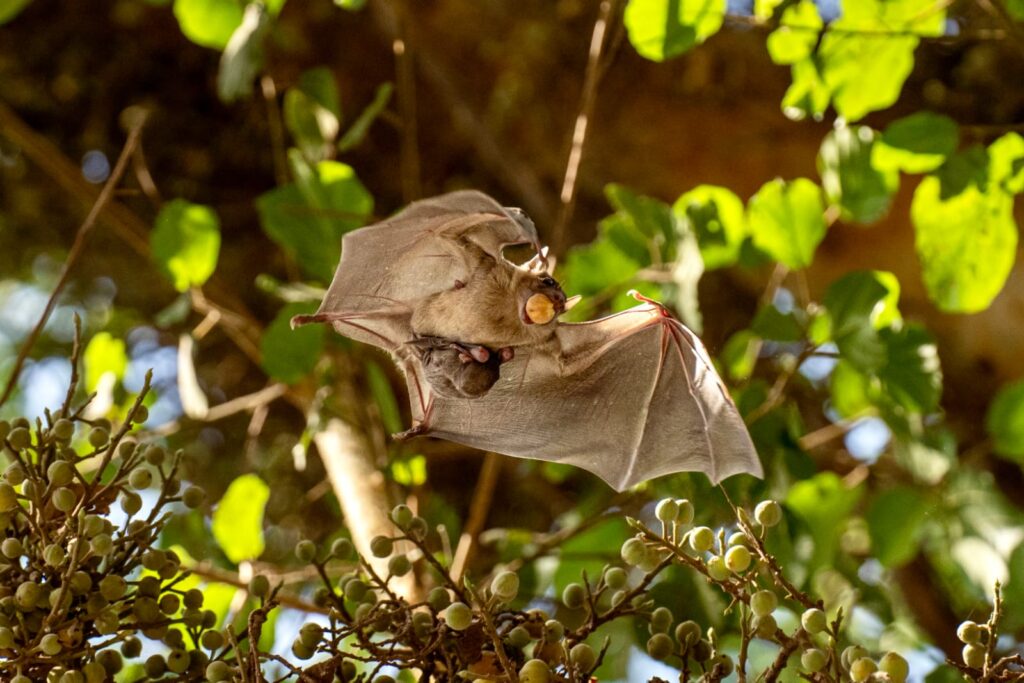Female bats suffer “pregnancy brain”, according to new research at Tel Aviv University.
They experience the same forgetfulness and mental fogginess as expectant mothers, and that means they fly slower and lower in their hunt for prey.
They normally assess the way their calls bounce off of their surroundings to determine the size and location of objects, known as echolocation. This lets them navigate, hunt, identify enemies, and avoid obstacles – even in total darkness.
But the researchers have found that pregnant bats use echolocation less, and produce 20 percent fewer calls. To the best of their knowledge, this is the first evidence of pregnancy affecting mammals’ sensory abilities.
They taught the bats to search for and land on a small landing pad, and recorded the echolocation of two groups: pregnant and non-pregnant bats. The pregnant bats produced around seven sounds per seconds while landing, while the average bat produced about 10 calls per second.
“When a bat makes fewer calls, it gathers less information about the environment, its chance of colliding with objects increases, and its chance of finding food decreases — and this is at a time when the bat needs extra food to sustain the fetus in its womb,” said Prof. Yossi Yovel, head of the university’s Sagol School of Neuroscience.
“In the second phase of the study, we used a computer simulation to simulate the effect of the decreased rate of calls on the bats’ performance, and indeed, we saw that the slowed rate makes it more difficult for the bats to locate prey.”
Sign up for our free weekly newsletter
SubscribePrevious studies have found that bats tend to change their diets during pregnancy, and until now, it was believed that this was due to the bats’ difficulty in flying. The current study raises the possibility that the change may also be due to their difficulty in detecting certain types of prey.
Mor Taub, the research assistant who led the study, said: “This is the only evidence we found in the professional literature showing that pregnancy affects mammals’ sensory abilities.
“We assume that there are similar cases in other species as well, but this is the first time that researchers have been able to measure and demonstrate the impairment empirically.
“Beyond the scientific interest, it is important to preserve mammal species in the wild, especially during pregnancy and newborn care, since animals are particularly vulnerable during this period.”
The findings have been published in the journal BMC Biology.







Facebook comments